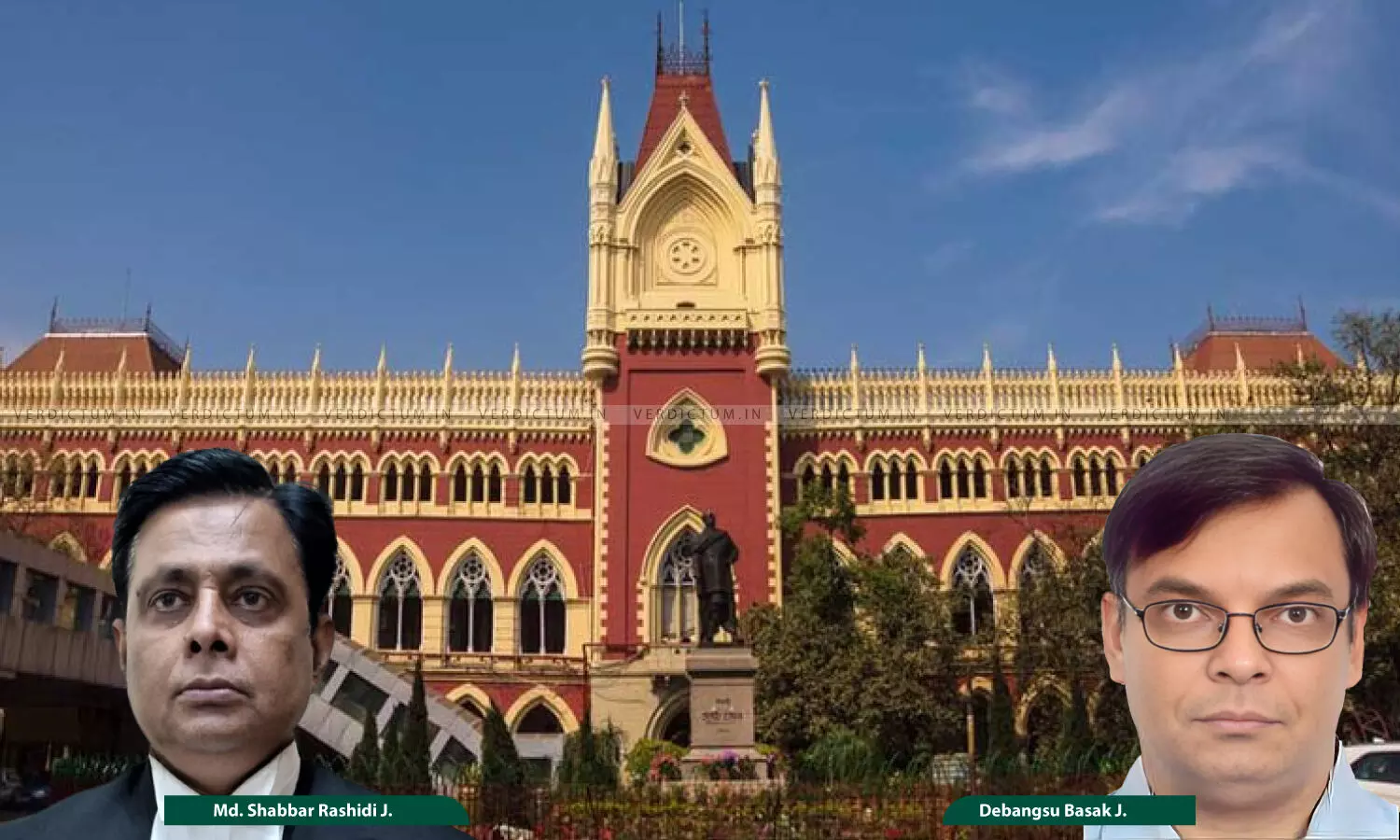
Justice Md. Shabbar Rashidi, Justice Debangsu Basak, Calcutta High Court
Court Imposing Death Sentence Must Return Finding That Convict Is Beyond Reformation & Would Be A Menace To Society: Calcutta High Court
 |
|The Calcutta High Court was considering a Death Reference and Appeal against the impugned judgment of conviction and consequent order of sentence passed under section 302 of the IPC.
While commuting the death sentence of a murder convict to life imprisonment, the Calcutta High Court has ruled that the court imposing the death sentence must also return a finding that the convict is beyond reformation and would be a menace to society if allowed to return after a specific period of time.
The Calcutta High Court was considering a Death Reference and Appeal against the impugned judgment of conviction and consequent order of sentence passed under section 302 of the IPC.
The Division Bench of Justice Md. Shabbar Rashidi and Justice Debangsu Basak observed, “As regards the imposition of death sentence upon the appellant, it is well settled principle of law that death penalty may be imposed if the court awarding the sentence comes to definite finding that the option of imposing of any punishment other than death penalty is unquestionably foreclosed and would be insufficient in the facts and circumstances of the case. The court imposing the death sentence must also return a finding that the convict is beyond reformation and would be a menace to the society if allowed to return after a specific period of time.”
Senior Advocate Sourav Chatterjee represented the Appellant, while Public Prosecutor Debasish Roy represented the Respondent.
Factual Background
One Arati Bera lodged a complaint with the Officer-in-Charge to the effect that the appellant being her grandson, in relation, dragged her mother forcibly from her house due to anger. She further stated that the appellant took the victim near a Shiv temple in her village and chopped off her head with a sharp weapon. The de-facto complainant further stated in her written complaint that after such incident, the appellant returned to his house dancing down the road carrying the head of the victim in one hand and a sharp cutting weapon in the other. A case thus came to be registered against the appellant under Sections 302 and 201 of the IPC.
Reasoning
The Bench noticed that the written complaint disclosed that the victim was dragged by the appellant from her house, while she was entering her house. She was taken to a nearby Shib temple, within the vicinity where she was beheaded by the appellant with a sharp cutting weapon. As per the Bench, from the evidence of the witnesses, it was quite convincingly established that the victim was forcibly dragged out of her house and taken to the Kali temple. She was made to bow down and the appellant struck on the back of her neck with a sharp cutting weapon, resulting in the unnatural death of the victim. The ocular testimony of the witnesses established that it was the appellant who dealt the fatal blow upon the victim causing her death.
“There may be certain minor contradictions in the testimony of the aforesaid witnesses but such contradictions do not tell upon the trustworthiness of the prosecution case. The defense has not been able to dislodge the evidence of aforesaid witnesses in so far as it refers to forcibly taking the victim to the temple and striking her with a sharp cutting weapon that severed her head resulting in her death”, it said. The Bench found no reason to interfere with the impugned judgment in so far as it related to the conviction of the appellant for the offence punishable under Section 302 of the Indian Penal Code.
The first witness had stated that such act was done by the appellant and his parents as they believed her mother to be a witch and they were offering a sacrifice. Father of the de-facto complainant deposed as the second witness stated that his wife was murdered by the appellant and she wife was declared as a witch by the appellant. “...the circumstances of the case suggest that the victim was murdered on the plea of her being a witch”, it said.
The Bench further noted that the overall conduct in the correctional home was found to be good. His age was also of consideration. It was also noticed that he had suffered a fall from the roof of the bus, resulting in his mental illness, because of which he often turned violent for which the family had to keep him detained. Taking all the aforesaid factors coupled with the conduct of the appellant in the correctional home and that he had no criminal antecedents, the Bench held that imprisonment for life would be sufficient punishment instead of death penalty. “Period of detention already undergone by the appellant shall be set off against the substantive punishment in terms of the provisions contained in Section 428 of the Code of Criminal Procedure”, it concluded.
Cause Title: The State of West Bengal v. Radha Kanta Bera (Death Reference No. 02 of 2023)
Appearance
Appellant: Senior Advocate Sourav Chatterjee, Advocate Soumya Nag
Respondent: Public Prosecutor Debasish Roy, Advocates Rudradipta Nandy, Amita Gaur